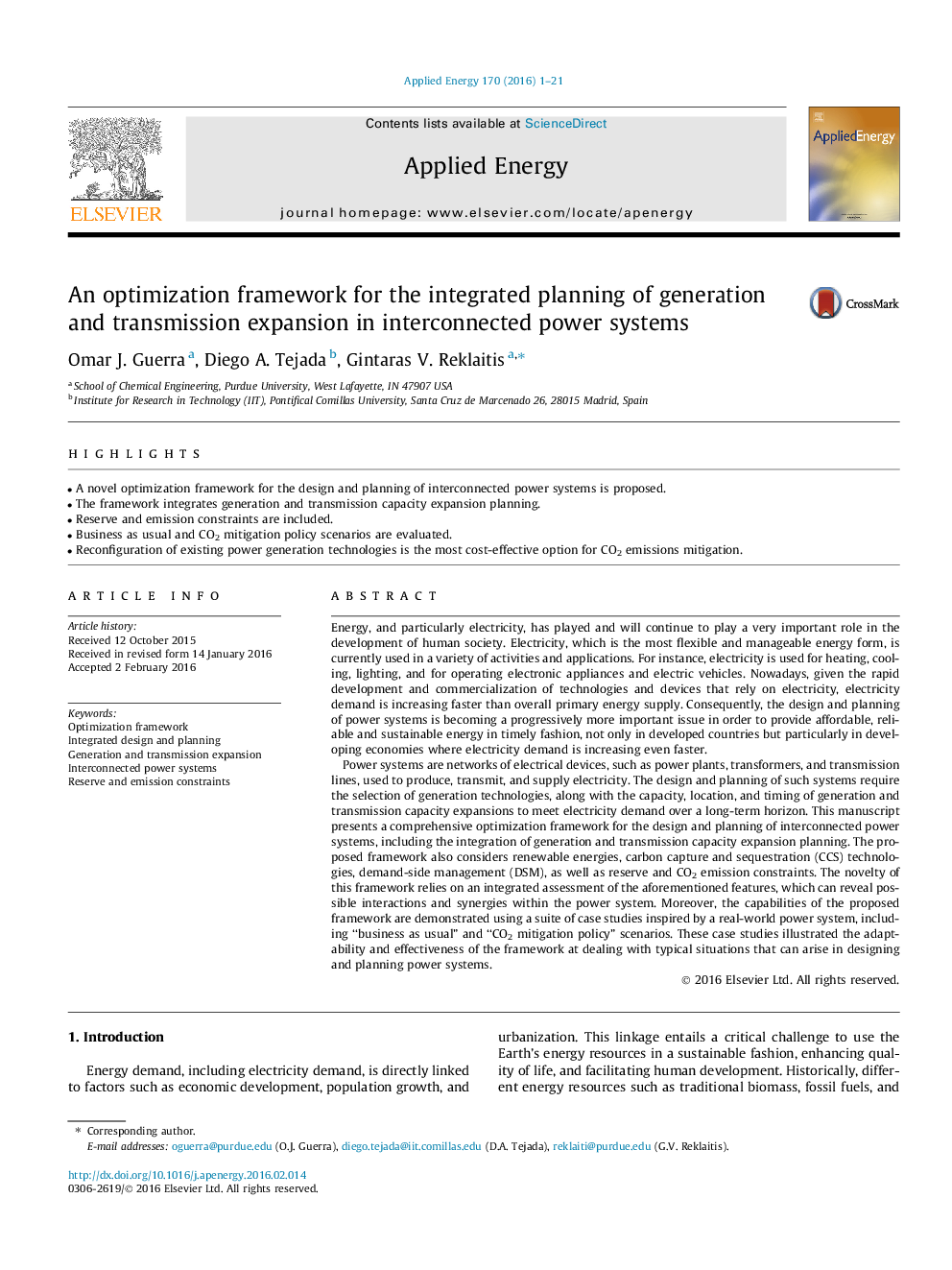| Article ID | Journal | Published Year | Pages | File Type |
|---|---|---|---|---|
| 6683380 | Applied Energy | 2016 | 21 Pages |
Abstract
Power systems are networks of electrical devices, such as power plants, transformers, and transmission lines, used to produce, transmit, and supply electricity. The design and planning of such systems require the selection of generation technologies, along with the capacity, location, and timing of generation and transmission capacity expansions to meet electricity demand over a long-term horizon. This manuscript presents a comprehensive optimization framework for the design and planning of interconnected power systems, including the integration of generation and transmission capacity expansion planning. The proposed framework also considers renewable energies, carbon capture and sequestration (CCS) technologies, demand-side management (DSM), as well as reserve and CO2 emission constraints. The novelty of this framework relies on an integrated assessment of the aforementioned features, which can reveal possible interactions and synergies within the power system. Moreover, the capabilities of the proposed framework are demonstrated using a suite of case studies inspired by a real-world power system, including “business as usual” and “CO2 mitigation policy” scenarios. These case studies illustrated the adaptability and effectiveness of the framework at dealing with typical situations that can arise in designing and planning power systems.
Related Topics
Physical Sciences and Engineering
Energy
Energy Engineering and Power Technology
Authors
Omar J. Guerra, Diego A. Tejada, Gintaras V. Reklaitis,
